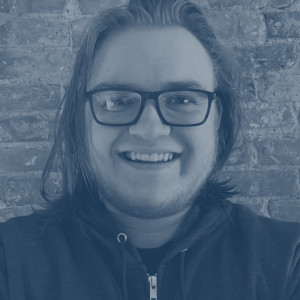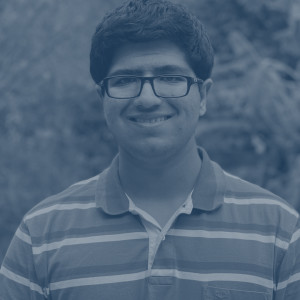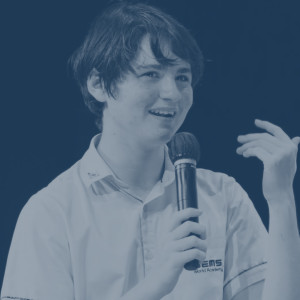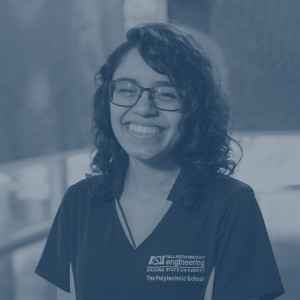Erin McNulty, 20
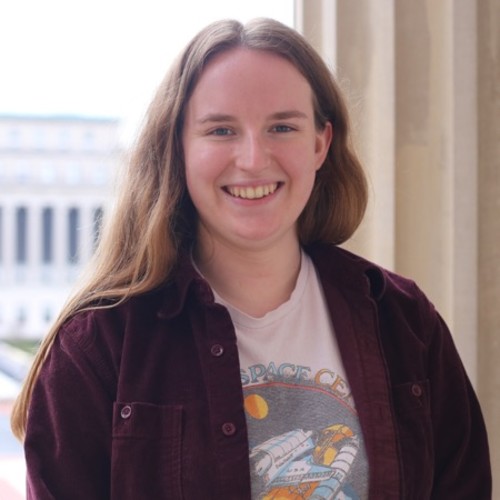
When Erin first arrived at Columbia, she was unsure that Software Engineering was the career path for her. She had a past with competitive coding but was worried that Computer Science wouldn’t give her the opportunity to express her creative side. Luckily, Erin joined the Columbia Daily Spectator’s product engineering team, where she learned some basic web development skills. Armed with the fundamentals of React, Erin signed up for Columbia’s student-led diversity hackathon, DivHacks, where she built a small website about women in technology, and soon saw her fears about a lack of creativity in software engineering melt away.
Erin’s growing web development skills, combined with support and passion from other student technologists she met through Columbia hackathons, suddenly opened up the door to building anything that she wanted. Soon after DivHacks, she was accepted into hackNY’s Class of 2020 fellowship, which helped Erin become an MLH Fellow in Batch 0. Quickly, this series of events skyrocketed Erin into the hacker community.
Erin’s hackathon engagement continued to expand through early 2020—in the spring of 2020, Erin and her friends entered DevFest, Columbia’s student hackathon. The night before the event, they all hung out around the dinner table and talked about their lives, revealing issues and hardpoints that could be solved through technology. This led to the creation of Timesort, a web application that crafts a schedule personalized for students to remove the stress of time management. During the actual hackathon, the initial, hacked-together version of Timesort contained lots of bugs and did not work as her team dreamed it would. But as news of the project got around the hackathon, Erin and her team found that a majority of students had a need for their fledgling project— in the months following the hackathon, Erin and her team spent months interviewing customers, interrogating design choices, and rebuilding Timesort.
The dedication to the idea paid off— Timesort’s team was accepted into Columbia’s startup accelerator program, Almaworks, where Erin and her team were mentored about how to market and launch the project effectively to her peers. A year later, her team continues working to make Timesort a standout time-management tool for students. The process of seeing her small, buggy hackathon project turn into a completed product has been extremely rewarding, and a frequent reference point for Erin when she looks back on the potential of CS.
As a former MLH Fellow, she’s used her experiences with hackNY and her fellowship to turn the isolation of quarantine into a time for her passion for computer science and impact in the hacker computer to grow and grow. The hackNY community was an inspiration to her — as she watched COVID expose fundamental flaws in US society, Erin grew doubtful that a career in technology could be a viable way to enact meaningful change. Her experience in hackNY assuaged this worry by demonstrating the precise methods through which technology can be used to make a positive impact in the world, with both immediate and long-lasting results. She heard founders, technology ethicists, and nonprofit leaders talk about how they founded values-based, ethical technology companies that made a genuine impact in the world, and learned about other fellow’s involvement in civic tech and nonprofits. Erin left that summer with a renewed faith in technology’s potential for social good, and with a community of talented technologists who she knew she could lean on.
As a part of hackNY’s focus on social good, Erin was paired with finEQUITY, a nonprofit that seeks to help incarcerated people improve their credit score and financial literacy. Her team worked to automate finquity’s mailing process for sending financial literacy education modules to incarcerated people. She took on a backend developer role despite her usual role as a frontend developer, and was initially intimidated by the unknowns of the project. Once again, her community lifted her up by hosting frequent pair programming calls to learn Node and Serverless development. She ultimately learned so much from her peers that she stuck with finequity through the rest of 2020, documenting the application and tying up the loose ends of the project for production.
As a developer, MLH and the variety of global perspectives that come along with it were essential to Erin’s growth. Hours spent pair programming with her mentor as well as her podmates left her with new knowledge of Vue and Typescript. The opportunity to hear from developers all over the world gave her plenty of expertise and advice, enabling her to make an impact within her various communities. After such an impactful summer with MLH and hackNY, Erin returned to Columbia with a renewed commitment to make an impact on her community through teaching others web development and building technology to bring the Columbia community together.
The combination of experience from hackathons, hackNY, and MLH equipped Erin with knowledge of web development skills that have enabled her to excel in her tech career. Currently, Erin utilizes her technology skills as the Head of Engineering at the Columbia Daily Spectator and as a Software Engineering Intern at MongoDB. Beyond technical prowess, the most valuable skill that Erin has acquired as a young technologist is perseverance.
Navigating through large, unfamiliar codebases and tracking down the last few bugs in her projects are just a few of the challenges Erin faces. As a queer woman in tech, she faces challenges surrounding equity in computer science firsthand. Through programs such as MLH provide global, diverse perspectives, it doesn’t always mean that voices are lifted up equally. Erin works to overcome these problems by using her leadership positions to make tech spaces more inclusive as a supportive role model. Her story highlights how quickly people can grow by dedicating themselves to technology and developer communities. She was lucky to grow along with the MLH Fellowship as a part of Batch 0 as they all navigated the new experience.
Most recently, she has persevered to finish a three year old project at the Columbia Daily Spectator, where she finished migrating columbiaspectator.com from JSP to React. With a looming deprecation date for the JSP site in June, Erin taught herself how to use Spectator’s publishing platform and successfully deployed the new site in May. While finishing up that project, she also led her team to build and deploy LionClubs, a web application to connect Columbia students with clubs at the university. She was recently awarded the Jim Pagels Memorial Prize for her dedication to Columbia Spectator’s community.
Because of the time and valuable perspective that she has dedicated as a mentor and volunteer with hackNY, MLH, and Columbia, Erin’s impact in her community is far reaching. She has reviewed hundreds of applications for the incoming classes of hackNY and aspiring global hackers of MLH, and has been there as a form of support and advice for those that join the team. At Columbia, Erin has been able to give back to younger students by teaching web development and Python. Even with students that might not consider themselves ‘hackers,’ Erin makes it a point to adopt the spirit of helpfulness and passion for engineering in order to make them feel welcome. As a teaching assistant for Columbia’s Data: Past, Present, and Future interdisciplinary applied math and history course, she’s even able to bring her knowledge to different areas of study and work with students from different backgrounds. In addition to her other work at Spectator, Erin has also revamped their web development training program, during which she frequently encourages the new engineers to engage with MLH and hackNY, just as she did.
It is thanks to hackNY that Erin believes in the power of social change and the ability of the hacker community to make that change happen. She commits herself to sharing her knowledge with younger developers, as she reaps the rewards of her effort through the incredible growth from the engineers that she mentors. In the future, she hopes to broaden the impact that these fellowships, which have made such an impact in her own life, have on other young technologists while working to make the hacker community more inclusive and diverse for generations of developers to come.
Quick Facts
Erin McNulty, 20

When Erin first arrived at Columbia, she was unsure that Software Engineering was the career path for her. She had a past with competitive coding but was worried that Computer Science wouldn’t give her the opportunity to express her creative side. Luckily, Erin joined the Columbia Daily Spectator’s product engineering team, where she learned some basic web development skills. Armed with the fundamentals of React, Erin signed up for Columbia’s student-led diversity hackathon, DivHacks, where she built a small website about women in technology, and soon saw her fears about a lack of creativity in software engineering melt away.
Erin’s growing web development skills, combined with support and passion from other student technologists she met through Columbia hackathons, suddenly opened up the door to building anything that she wanted. Soon after DivHacks, she was accepted into hackNY’s Class of 2020 fellowship, which helped Erin become an MLH Fellow in Batch 0. Quickly, this series of events skyrocketed Erin into the hacker community.
Erin’s hackathon engagement continued to expand through early 2020—in the spring of 2020, Erin and her friends entered DevFest, Columbia’s student hackathon. The night before the event, they all hung out around the dinner table and talked about their lives, revealing issues and hardpoints that could be solved through technology. This led to the creation of Timesort, a web application that crafts a schedule personalized for students to remove the stress of time management. During the actual hackathon, the initial, hacked-together version of Timesort contained lots of bugs and did not work as her team dreamed it would. But as news of the project got around the hackathon, Erin and her team found that a majority of students had a need for their fledgling project— in the months following the hackathon, Erin and her team spent months interviewing customers, interrogating design choices, and rebuilding Timesort.
The dedication to the idea paid off— Timesort’s team was accepted into Columbia’s startup accelerator program, Almaworks, where Erin and her team were mentored about how to market and launch the project effectively to her peers. A year later, her team continues working to make Timesort a standout time-management tool for students. The process of seeing her small, buggy hackathon project turn into a completed product has been extremely rewarding, and a frequent reference point for Erin when she looks back on the potential of CS.
As a former MLH Fellow, she’s used her experiences with hackNY and her fellowship to turn the isolation of quarantine into a time for her passion for computer science and impact in the hacker computer to grow and grow. The hackNY community was an inspiration to her — as she watched COVID expose fundamental flaws in US society, Erin grew doubtful that a career in technology could be a viable way to enact meaningful change. Her experience in hackNY assuaged this worry by demonstrating the precise methods through which technology can be used to make a positive impact in the world, with both immediate and long-lasting results. She heard founders, technology ethicists, and nonprofit leaders talk about how they founded values-based, ethical technology companies that made a genuine impact in the world, and learned about other fellow’s involvement in civic tech and nonprofits. Erin left that summer with a renewed faith in technology’s potential for social good, and with a community of talented technologists who she knew she could lean on.
As a part of hackNY’s focus on social good, Erin was paired with finEQUITY, a nonprofit that seeks to help incarcerated people improve their credit score and financial literacy. Her team worked to automate finquity’s mailing process for sending financial literacy education modules to incarcerated people. She took on a backend developer role despite her usual role as a frontend developer, and was initially intimidated by the unknowns of the project. Once again, her community lifted her up by hosting frequent pair programming calls to learn Node and Serverless development. She ultimately learned so much from her peers that she stuck with finequity through the rest of 2020, documenting the application and tying up the loose ends of the project for production.
As a developer, MLH and the variety of global perspectives that come along with it were essential to Erin’s growth. Hours spent pair programming with her mentor as well as her podmates left her with new knowledge of Vue and Typescript. The opportunity to hear from developers all over the world gave her plenty of expertise and advice, enabling her to make an impact within her various communities. After such an impactful summer with MLH and hackNY, Erin returned to Columbia with a renewed commitment to make an impact on her community through teaching others web development and building technology to bring the Columbia community together.
The combination of experience from hackathons, hackNY, and MLH equipped Erin with knowledge of web development skills that have enabled her to excel in her tech career. Currently, Erin utilizes her technology skills as the Head of Engineering at the Columbia Daily Spectator and as a Software Engineering Intern at MongoDB. Beyond technical prowess, the most valuable skill that Erin has acquired as a young technologist is perseverance.
Navigating through large, unfamiliar codebases and tracking down the last few bugs in her projects are just a few of the challenges Erin faces. As a queer woman in tech, she faces challenges surrounding equity in computer science firsthand. Through programs such as MLH provide global, diverse perspectives, it doesn’t always mean that voices are lifted up equally. Erin works to overcome these problems by using her leadership positions to make tech spaces more inclusive as a supportive role model. Her story highlights how quickly people can grow by dedicating themselves to technology and developer communities. She was lucky to grow along with the MLH Fellowship as a part of Batch 0 as they all navigated the new experience.
Most recently, she has persevered to finish a three year old project at the Columbia Daily Spectator, where she finished migrating columbiaspectator.com from JSP to React. With a looming deprecation date for the JSP site in June, Erin taught herself how to use Spectator’s publishing platform and successfully deployed the new site in May. While finishing up that project, she also led her team to build and deploy LionClubs, a web application to connect Columbia students with clubs at the university. She was recently awarded the Jim Pagels Memorial Prize for her dedication to Columbia Spectator’s community.
Because of the time and valuable perspective that she has dedicated as a mentor and volunteer with hackNY, MLH, and Columbia, Erin’s impact in her community is far reaching. She has reviewed hundreds of applications for the incoming classes of hackNY and aspiring global hackers of MLH, and has been there as a form of support and advice for those that join the team. At Columbia, Erin has been able to give back to younger students by teaching web development and Python. Even with students that might not consider themselves ‘hackers,’ Erin makes it a point to adopt the spirit of helpfulness and passion for engineering in order to make them feel welcome. As a teaching assistant for Columbia’s Data: Past, Present, and Future interdisciplinary applied math and history course, she’s even able to bring her knowledge to different areas of study and work with students from different backgrounds. In addition to her other work at Spectator, Erin has also revamped their web development training program, during which she frequently encourages the new engineers to engage with MLH and hackNY, just as she did.
It is thanks to hackNY that Erin believes in the power of social change and the ability of the hacker community to make that change happen. She commits herself to sharing her knowledge with younger developers, as she reaps the rewards of her effort through the incredible growth from the engineers that she mentors. In the future, she hopes to broaden the impact that these fellowships, which have made such an impact in her own life, have on other young technologists while working to make the hacker community more inclusive and diverse for generations of developers to come.
